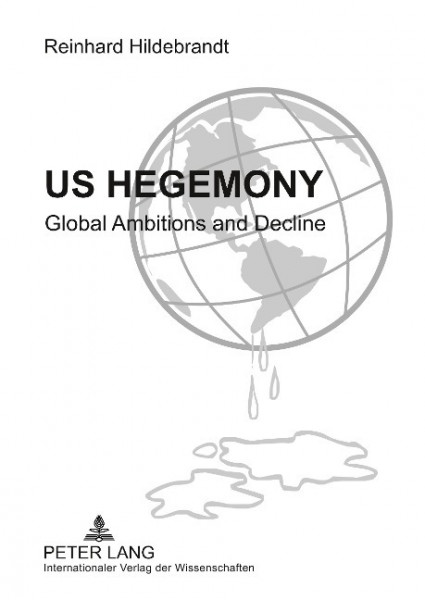
US Hegemony
Kurzinformation
inkl. MwSt. Versandinformationen
Artikel zZt. nicht lieferbar
Artikel zZt. nicht lieferbar

Beschreibung
With the end of the 'East-West' conflict in 1990, an entirely new constellation seemed to emerge for the first time in the history of mankind. This was perceived by the power elite in the USA as a useful challenge to lend its - until then territorially restricted - hegemony a global dimension. From the perspective of the US elites (Francis Fukuyama), a period of indefinite American control over the rest of the world, in which there would be no more scope for potential rivals to emerge, would characterize the end of history. But some years later, the USA had to accept that the dual hegemony it had built up together with the Soviet Union was fundamental to the continued existence of American hegemony. Its inability to sustain a global hegemony revealed itself in the severe setbacks it suffered in the three wars waged in Iraq, Afghanistan and against the so-called international terrorists. Undeterred by the USA's imminent isolation, influential US experts insisted that US policies were still in line with the US' general perception of its role in the world: firstly to work for the good of the world and, secondly, to exercise its military might even when the rest of the world opposed it. Ignored for a long time by these very experts were the emergence of the interregional Asian triangle (China, India, Russia), Europe's reorientation and, in consequence, the USA's relegation as a hegemonic power. von Hildebrandt, Reinhard
Produktdetails

So garantieren wir Dir zu jeder Zeit Premiumqualität.
Über den Autor
The Author: Reinhard Hildebrandt studied political science and earned his doctorate therein. He has formerly served as free-lance associate of the Goethe Institute, the German Academic Exchange Service (DAAD), the Dartmouth College, USA, before becoming an associate lecturer of the Otto-Suhr-Institute of the Free University of Berlin, focusing on globalization and civil society.

- hardcover
- 284 Seiten
- Erschienen 1996
- Oxford University Press Inc

- turtleback
- 609 Seiten
- Nomos

- paperback
- 400 Seiten
- Erschienen 2002
- Routledge

- audioCD -
- Erschienen 2014
- Penguin Group USA










































